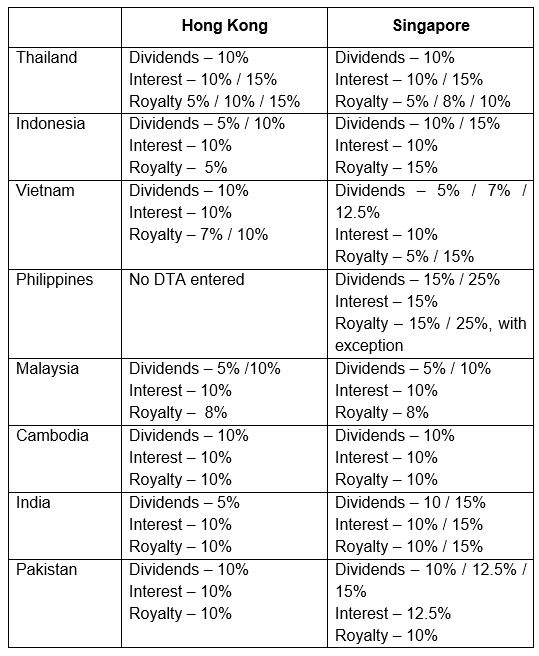在COVID-19大流行刚开始时,我们遇到不少中小型企业(SME)进入恐慌模式。他们大多对即时或将面临的现金流量问题和对债权人的处理寻求法律意见。
我们现已经过了3个多月的新生活模式。然而,在商业世界中,有很多2020年第一季度的报告显示大多数企业的收入损失比例都很大,而裁员,减薪及干脆关门大吉也是常见。
现在与3个月前相比,我们的法律意见会有所不同吗?答案是会及不会。法律没有改变,但是病毒的全球传播对企业造成了进一步的限制,例如入境限制导致供应链中断。这种变化的情况可能需要重新考虑商业策略,因而衍生再进一步考虑法律策略的需要。
在本系列的第2节,我们将探讨目前在某些经济领域运营的企业公司的方案。在这节,我们先讨论公司破产法的基本知识。
商业考虑
董事和股东应首先考虑当前的经济环境,业务预测和个人喜好,以决定该业务是否值得保留。一个全面的长期性风险评估是必要的,而分析短期内能否履行所有法律上的责任也是需要的。
与债权人的谈判
短期性的分析很在乎债权人(例如金融机构,房东,供应商和雇员)是否愿意给予企业一些喘息空间。
与债权人进行谈判时,要直截了当并提供具体的还款计划。通常,债权人同样有诚意让公司继续营运,目的是放长线, 希望公司在将来有能力偿还债务。具体的还款/筹款计划会使债权人充满信心。
如果债权人是银行,而债务是借贷产生的,则借贷通常以公司的某些资产(例如设备,收入),大股东的资产(例如土地资产)以及董事和股东的个人担保为抵押。因这些担保及抵押,破产可能是董事和股东面临的真正风险。与银行成功达成协议固然是上策,但谈判需要很高的技巧,特别是如果该企业是一家谈判筹码比较弱的SME。
在当前的香港经济中,尤其是在租赁即将到期的情况下,在合约内可以加入以下条款:中断条款(提前终止租赁的权利),减租条款(在某些情况下容许减租及免租期条款)不可抗力条款(实质上是终止租赁条款)。
我们公司曾讨论过不可抗力条款及其操作方式:https://oln-law.com/are-you-frustrated-by-your-force-majeure-clause。对于法律允许处理员工离职或减薪的方法,我们在此发表了一篇文章:https://oln-law.com/employment-matters-to-consider-in-economic-downturn。
Scheme of Arrangement债务重组/清盘的替代方案
如果谈判失败,并且公司无法找到偿还债务的方法,应考虑订立一项Scheme of Arrangement,这个scheme实质上是公司跟债权人及股东的一个和解方案。债权人接受的还债通常远少于其全额欠款。这是代替清盘的方法。
提案完成后,公司必须向法院申请召集股东和债权人的会议,以寻求他们对方案的同意。在《公司条例》(第32章)第674条框架内达成的协议必需要75%的票数通过。获得该通过后,方案必须由法院批准。在决定是否批准该计划时,法院将考虑以下因素(Re China Singyes Solar Technologies Holdings Ltd [2020] HKCFI 467):
(1)该方案是否基于允许的目的;
(2)被召集为同一类的债权人是否具有足够相似的法律权利,和相同的利益;
(3)会议是否按照法院的指示适当召开;
(4)是否已向债权人提供有关该方案的足够信息,以使他们能够作出知情的决定;
(5)是否已取得必要的法定人数;
(6)对方案的支持是否一个平常但诚实及聪明的人会作出的决定,
(7)在国际情况下,该分案与香港之间是否有足够的联系,以及该分案在其他相关司法管辖区是否有效。
一个Scheme of Arrangement的运作需要相当的时间及金钱,特别是因为它涉及单独的法院申请和会议。即使召开会议,也可能难以获得75%的支持,例如,如债权人认为他们在单独的法律程序中可能获得更好的结果。此外,在该计划得到法院的全面批准,没有任何事情可以阻止债权人到法院对公司提出法律诉讼。
清盘
债权人追讨债务的选择中,把公司清盘最为严峻。该过程涉及清盘人代公司执行追讨债务的事项,在这途中,几乎一定涉及董事给予关于资金流动及财政/金融交易的证据(通过宣誓书或上庭作证)。
法院会在以下情况作出清盘命令:
1.债务人在收到法定要求索请书的21天内未支付或未提供足够的担保,金额超过10,000港元。
2.债务人未完全或部分地履行法院对有利债主的判决或命令。
3.当债权人证明债务人未能如期偿还债务(现金流量测试)或公司资产不足以偿还其债务(资产负债表测试)。
反对法庭作出清盘令的其中一个方法是证明债务的存在受争议。
避免在公司遇到困难时进行商业交易
清盘人具有广泛的权力调查公司事务及其董事和高级人员的行为。特别是,清盘人可能会质疑以下类型的交易:
1. 逊值交易(低估交易),定义为:(i)公司在没有收到任何对价的情况下做出交易;或(ii)交易的对价比较市面的价值为低。有关的审查时间是在公司清盘开始之日(即提出清盘呈请的时间)之前的5年。
2. 不公平的偏好,是指公司给予某些债主比较好的回报或债权优先,债权人处于比通常情况下更好的地位。为了给予与公司有关连的人(即包括董事配偶或跟董事有血缘关系的人)不公平的优惠,受到审查的有关时间范围是清盘开始之日前两年 。如果对无关连的人给予不公平的偏爱,则受审查的相关时限为6个月。
如果发现某交易是逊值交易或不公平的交易,清盘人有权开始法律诉讼,以收回资产,而公司董事可能会因批准/允许交易而面临民事或刑事制裁。
由于上述原因,董事在处理公司交易时,一定要小心行事。
如果您想了解更多有关面临债务危机的公司的权利,义务及选择,请随时与赵君宜律师联络。
赵君宜
+852 2186 1885
争议解决合伙人
高李严律师行
 香港中环雪厂街二号圣佐治大厦五楼503室
香港中环雪厂街二号圣佐治大厦五楼503室 +852 2868 0696
+852 2868 0696







